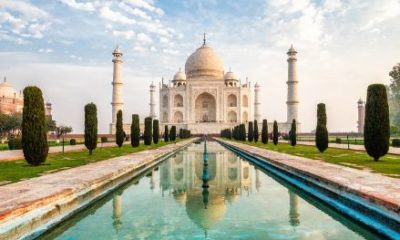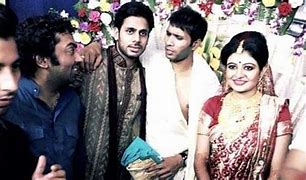Top News
‘Bengal will lose vital heritage unless ASI tackles smuggling’

Kolkata: West Bengal will lose a “vital” part of its heritage unless the Archaeological Survey of India (ASI) deals with the menace of smuggling, says acclaimed British author and historian Charles Allen, who is busy exploring the Dravidian element in Indian culture for his next book.
He pointed out that Chandraketugarh, 35 km from Kolkata, has traces of a wonderful fertility cult which people don’t know about and yet the most wonderful terracotta that is being found is “unfortunately being smuggled out of the country and sold in big auction houses”.
“It’s rather sad because you can see Bengal’s culture is being slowly smuggled out of the country and unless that is tackled by the ASI people, Bengal is going to lose a very vital part of its culture,” Allen, an authority on British India and South Asia with more than 23 books and several documentaries to his credit, told in an interview.
Some of his notable recent works include the biography of English author Rudyard Kipling, “Kipling Sahib: India and the Making of Rudyard Kipling” (2007). Allen’s great-grandfather employed the 16-year-old Kipling to work on his newspaper, the “Civil and Military Gazette”, an association that provided fodder for the biography.
“The book I am writing now is about Coromandel – South India. I know so little about South India. I want to explore the Dravidian element in Indian culture and it’s not just religion because there is a pre-religion element. You might call it the Adivasi element. There are still many layers of this Indian element that I don’t know about,” the 75-year-old author said.
Allen is trying to dig out beliefs pertaining to the Mother Goddess that according to him is an “ancient” element in Dravidian culture (pre-Aryan culture).
“I am also including Bengal in that incidentally, because we do not associate Bengal with Dravidian India but there are pockets of language here which are still Dravidian – spoken in the countryside – and underlining Bengali is that early culture, for example, the devotion to the Mother Goddess. That is still huge in Bengal,” he elaborated.
A self-confessed “child of Raj”, the prolific writer was born in Cawnpore (now Kanpur, Uttar Pradesh) in 1940 in the last years of the British rule in India, where several generations of his family served since the 1790s.
A recipient of ‘Sir Percy Sykes Gold Medal’ of the Royal Society for Asian Affairs for his contribution to Asian studies, Allen, based in Somerset in southwest England, is in India to tour Kerala for his book, which goes by the working title of “Coromandel”.
An active Fellow of the Royal Geographical Society and the Royal Asiatic Society, a Council Member of the Kipling Society and a Member of the Royal Society for Asian Affairs, Allen has travelled extensively across India, the Himalayas and remote corners of far-western Tibet in the last four decades.
But his proclivity for writing on subjects associated with the British rule in India or his interest in historical figures of Indian history never waned, so much so that he has been “drawn” to India 40-50 times since leaving the country in 1947 to be schooled in England.
“India is like an onion. You peel layers and new layers come up. It is very fascinating and has kept me going. It is a complex society,” said Allen whose last book, “Ashoka: The Search for India’s Lost Emperor” (2011) is an Orientalist biography of the legendary Indian ruler.
The author of “The Buddha and the Sahibs: the Men who Discovered India’s Lost Religion” and “The Search for Shangri-La: A Journey into Tibetan History” however refrained from commenting on modern India.
“I don’t want to sentimentalise India or be critical about it. I don’t want to do either. I am what I am. I am a child of the Raj but also I am a child of India. I am always being torn into two different directions.
“Modern India is so complex and changing so fast it is very hard to sit back and draw any conclusions, so I am much more happy talking about the past,” Allen said.
Top News
Dr. Abhishek Verma Dedicates a Shelter in Memory of His Mother, Veena Verma, at KGMU; Inaugurated by Daughter Nicolle Verma

World-renowned business tycoon Dr. Abhishek Verma has supported Foodman Vishal Singh’s Hunger-Free World mission. In memory of his mother, Late Veena Verma, who was a 3 term Rajya Sabha MP.
Dr. Verma dedicated a state-of-the-art free permanent shelter for the attendants of patients at KGMU Medical University, Lucknow, under the aegis of Vijay Shree Foundation. His daughter, Nicolle Verma, inaugurated the shelter.

During the event, Foodman Vishal Singh honored Nicolle Verma by presenting her with a memento. Mrs. Nidhi Sharma and Avantika Yadav, associated with the organization, welcomed her with garlands. Following this, Nicolle Verma distributed essential items to the attendants and also handed out fruits. She became emotional remembering her grandmother on her birth anniversary.
On this occasion, she also inaugurated the “Veena Verma Sevalaya” in memory of her grandmother, Veena Verma, to serve the attendants. She expressed, “I feel proud that my family is engaged in nation-building as well as social service. Today, in collaboration with Vijay Shree Foundation founder Foodman Vishal Singh Ji, I feel immensely proud to dedicate this shelter for the poor, helpless, and needy attendants of patients battling serious illnesses like cancer. I am honored to be associated with the Hunger-Free World Mission for humanity.”

Inspired by the continuous humanitarian service provided by Vijay Shree Foundation over the past 17 years, Nicolle Verma donated 10 lakh rupees to support the cause. The purpose of this donation is to ensure that services continue for the needy attendants of patients suffering from severe illnesses in hospitals, as facilitated by Foodman Vishal Singh.
It is noteworthy that Dr. Abhishek Verma’s family has a legacy of public and philanthropic service. They are helping millions to carry forward the values and service work of their parents. On the occasion of his mother’s birth anniversary, Dr. Abhishek Verma dedicated this state-of-the-art permanent shelter at Lucknow Medical College to serve the attendants of patients through the Vijay Shree Foundation.

Supporting Foodman Vishal Singh’s Hunger-Free World mission, Dr. Abhishek Verma assured that he would continually support keeping this flame of humanity alive. He also promised to assist in providing medicines to the helpless patients.
Continuing her grandmother’s legacy of service, Nicolle Verma personally served food to the needy patients and attendants. She said, “It is our good fortune to have received the joy of doing this noble work today through Foodman Vishal Singh. I have taken another step forward in carrying my family’s values and cooperation by joining hands with the Vijay Shree Foundation. My father taught me to serve and help the needy, and I feel happy when I bring a smile to someone’s face.”

On the birth anniversary of the late Veena Verma, the event organizer, Vijay Shree Foundation founder Foodman Vishal Singh, said, “We feel proud and happy that Dr. Abhishek Verma, a globally renowned business tycoon, has extended his support to uplift our country from the hunger index. Today, on his mother’s birth anniversary, he inaugurated a state-of-the-art permanent shelter at Lucknow Medical College, which will always be helpful for the needy attendants of patients. It is a pleasure for me and the organization to receive the affection of Mr. Verma.”
The event was attended by General Manager Verma Family Office Hemant Garg, Sonu Rajput, and the organization’s volunteers, including Sandeep Singh, Parmeshwar Ji, Prashant Rao Gautam, Balram Singh, Ramesh Chaudhary, Suman, Jeetu, Anil, Suraj, Vinay, Manish Bhadauria, Manas Mehrotra, Vivek, Apurv, Happy, and others.























